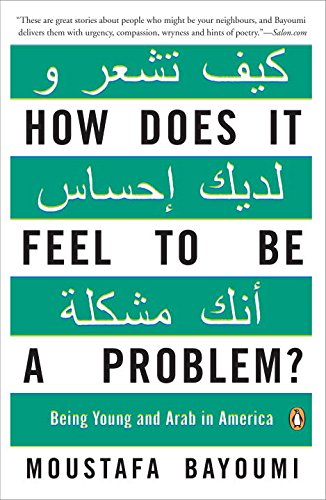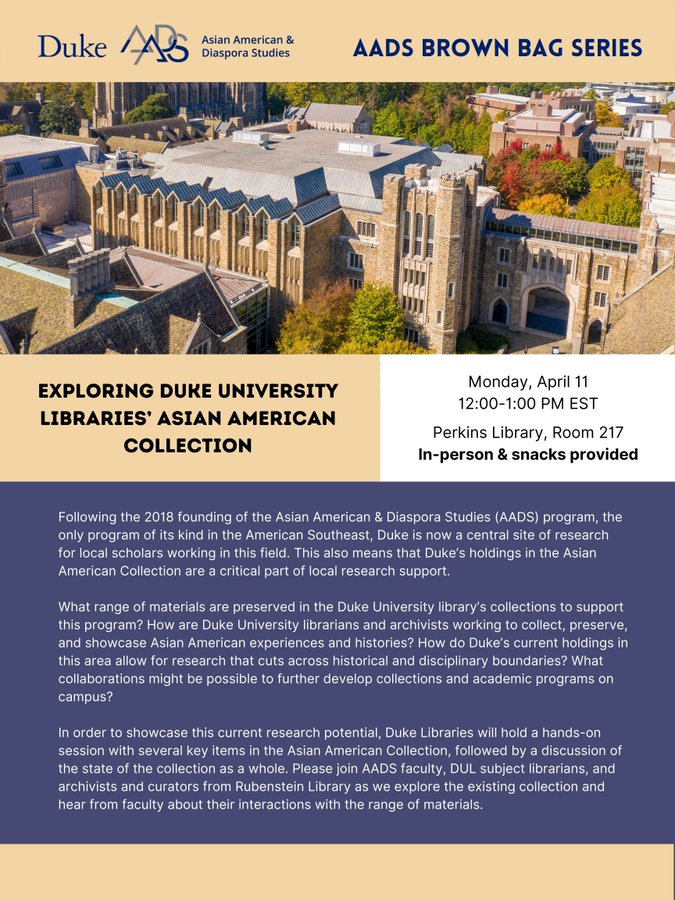Contributed by Matthew Hayes, Japanese Studies and Asian American Studies Librarian
Asian American history is part and parcel of American history. Asian American experiences emerge within an American context and in relation to the many other cultural, institutional, and political aspects that comprise contemporary life in the United States. And yet, beginning with the initial moments of immigration to the United States by people from Asia, large swathes of white Americans have deemed these histories and experiences as somehow un-American. Several historical moments have laid bare this tendency to distinguish Asian Americans as separate from or, in some cases, a threat to non-Asian Americans: the Exclusion Act of 1882 that barred citizenship, as well as the future entry, of Chinese immigrants; the incarceration of Japanese and Japanese Americans during WWII; the post-9/11 prejudice and profiling of Arab and Muslim Americans; and sweeping incidents of anti-Asian hate, especially of East Asian Americans, following the emergence of the global COVID-19 health crisis. This is to say nothing of the countless examples of racism, prejudice, and exclusion that punctuate history between these more visible and widespread examples.
This collection spotlight offers a glimpse into the spectrum of Asian American experiences in the contemporary United States. There are four interrelated genres of writing represented here and all of them are meant to amplify one another. The first is historical writing, which captures not only the movements and moments that comprise Asian American social, political, and economic histories in several regions of the United States, but also traces the emergence of Asian American Studies as a crucial academic discipline that helps us to better understand American history. The second is social science, which provides several key theoretical frameworks for thinking through intersectional, postcolonial, and racial aspects of experience and meaning-making within Asian American communities. These titles ought to serve as theoretical tools for exploring how cultural relationships, bodies of knowledge, and identities form the basis of Asian American subjectivity, and how this subjectivity is continually undermined by policies and systems that seek to delimit the experience of these (and other) ethnic communities within the United States. The third genre is memoirs and personal writing, which captures that very subjectivity. As a complement to the first two genres, both of which provide a largely impersonal or abstract view of Asian American communities and their experience across time, memoirs allow experiences within those communities to emerge first-hand. The reader is therefore allowed a personal glimpse into how some of these historical and theoretical mechanisms operated within lives and experiences of Asian American authors. Finally, literary titles by Asian American authors offers a few examples of how the experiences and perspectives of Asian American writers translate to fiction, which often tackles the very social and historical motifs brought to light in the other genres included here.
 Cover image for Moustafa Bayoumi’s How Does it Feel to Be a Problem?: Being Young and Arab in America (2008) Cover image for Moustafa Bayoumi’s How Does it Feel to Be a Problem?: Being Young and Arab in America (2008) |

Cover image for Paula Yoo’s From a Whisper to a Rallying Cry: The Killing of Vincent Chin and the Trial that Galvanized the Asian American Movement (2021) |
This collection spotlight comes on the heels of a very exciting development within Duke’s Asian American and Diaspora Studies (AADS) Program, which has very recently announced a new minor degree option for undergraduate students. After decades of student activism pushing for a curriculum that reflects America’s broad range of diverse backgrounds and histories, students are now able to engage in a full course of study as part of their long-term education. Through the introduction of this new minor degree, the value of Asian American Studies has finally been formally recognized at Duke.
Cultivating a cultural literacy—especially of the domestic cultures with which we interact nearly every day—is crucial for the development of future American generations. This collection spotlight is a great place to start for anyone interested in learning about Asian American communities and the important role they’ve played in the course of American history.
You can find these titles in our Collection Spotlight rack near our Perkins Library Service Desk on the first floor of Perkins starting on April 11th.
Also, consider joining us on April 11th at noon in Perkins 217 to explore our Asian American Collection.



